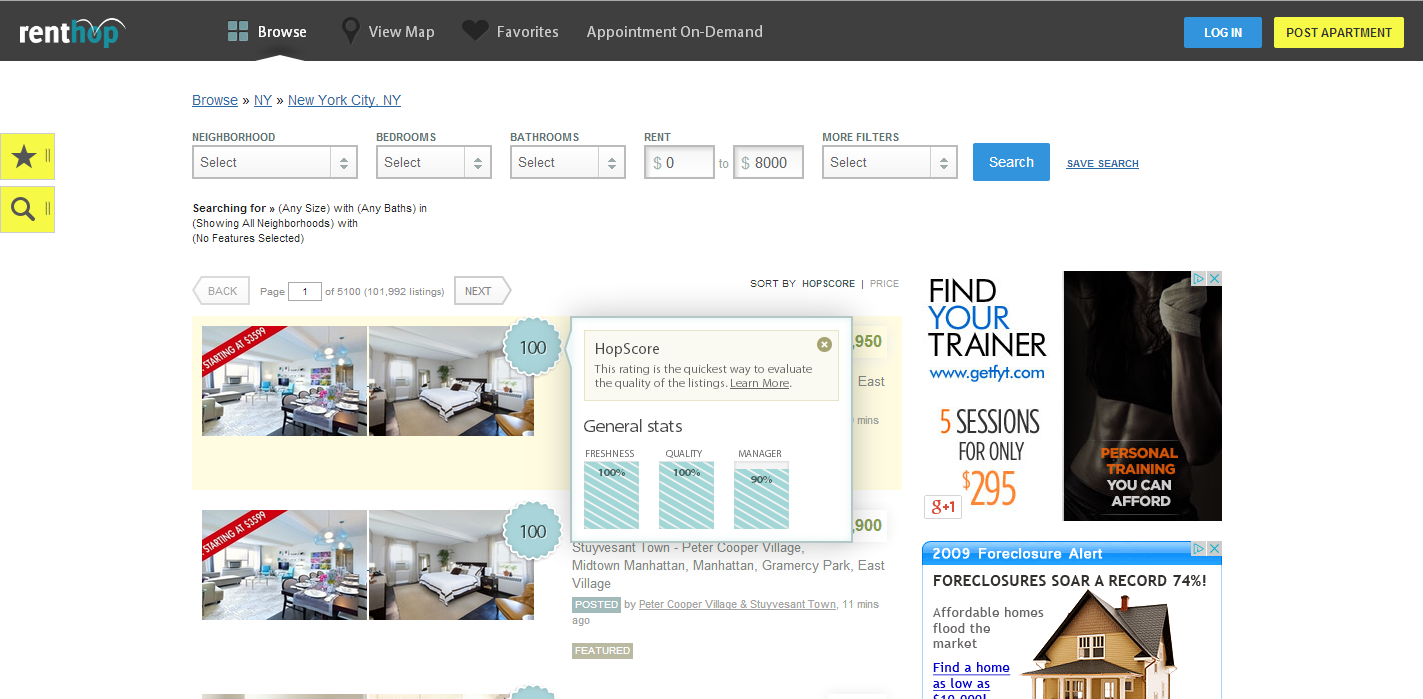This week’s New York Times Sunday real estate section ran an article on ghost listings in real estate sales. The article describes both the problem – that many real estate sites show old, inaccurate or fake listings (“ghost listings”) – and different responses, including self-policing by real estate organizations and relying on market disincentives to posting fake data.
At RentHop we have tens of thousands of rental listings across the New York area, and we work directly with brokers and property managers large and small. We’re glad to see attention being paid to this issue, because we work hard to make sure renters see accurate, fresh information on our site. Below are the tools we use to make sure that the listings provided by our clients – the brokers and property managers with whom we work – stay up and updated on our site.
First, each listing page has a link through which a user can notify us that s/he believes a listing is fake or inaccurate and explain why. When we receive notice of a fake or inaccurate listing we research the listing to confirm, and if it is we take it down. Often, brokers and property managers are the ones who find and report fake listings; they are extremely knowledgeable about the available inventory and they self-police very effectively.
The other problem, endemic to all real estate listing sites, is stale listings. As the NYT article suggests, brokers with limited inventory may use old listings to attract customers. Also, brokers and property managers may not themselves have updated information. Many internet listing services receive listings data directly from brokerage firms, and the firms may not always receive updated information from the landlord in timely fashion. Especially in New York, where apartments come on the market and are rented extremely quickly, it’s always an uphill struggle to keep data updated.
At RentHop we’ve developed an algorithm, the HopScore, that helps renters identify listings that are more likely to be stale. The HopScore analyzes real-time and historical data regarding the accuracy and completeness of each listing, the listing’s “freshness” and the responsiveness of the broker or property manager who posted the listing on RentHop. Each listing’s HopScore diminishes in proportion to the length of time the listing has been up on the site and the number of times that listing has been viewed. That’s because the more times something has been viewed, the higher the likelihood that it’s either already been rented or that there’s a problem with it. If a listing has a lower HopScore it will appear lower in the search results relative to newer, fresher listings with higher HopScores. The result is that renters see those newer, fresher listings first.

Finally, a note: we permit brokers in New York to post open listings. Sometimes the same apartment appears more than once. Although an apartment may be listed more than once on RentHop, each listing itself is unique – it’s got a different description, different freshness and a different broker. We want renters to be able to choose from among all the options available to find the best apartments for them.
As always, we welcome your feedback. Thanks for using our site!
———————————————————————————————————————
We’ve got a six-part guide to working effectively with brokers that will help you make good choices.
And while you’re at it, consider some amenities you should pay for – and some you shouldn’t.




